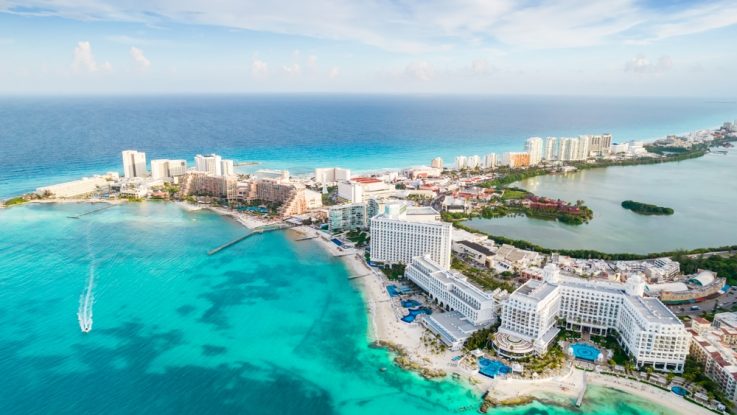
The term “smart cities” often conjures up images of glassy skyscrapers in bustling metropolitan areas with drones buzzing overhead while autonomous vehicles quietly purr through city streets. Those of us who work in this space know that the reality is far from this utopian (or dystopian) vision. But what many of us do not consider is how smart and connected technology impacts island communities. As with any technological innovation, there is great promise and also important areas of inquiry and consideration.
I had the honor and pleasure of attending Caribbean Week 2024 in New York City this July. Hosted by The Caribbean Tourism Organization (CTO), the event gathered ministers from The Bahamas, Jamaica, Turks and Caicos, Cayman Islands, St. Martin, Anguilla, U.S. Virgin Islands, and more along with other public sector leaders and industry partners to discuss the key issues affecting island communities. Amongst these topics was the notion of Smart Destinations and the role of smart technology.
Joining the panel discussion was Nicola Madden-Greig, CHTA President and also with The Courtleigh Hospitality Group, Jeremy Jones with Sandals Resorts International, and Carl Gordon with Mastercard. Moderating our discussion was Joan Leacock with CTO.
Our discussion quickly outlined the top priorities for The Caribbean Islands, centering on the major economic driver, tourism. The U.S. remains the top market for inbound travel to the Caribbean followed by Canada, France, and the UK with “notable opportunity” in Latin America (LATAM) according to the Summer Travel Trends 2024 published by Adara.
Early in our discussion, I quickly realized that I didn’t need to make the point that smart cities (or smart destinations) must begin with the “who” rather than the “how.” It was clear from the start that island communities intuitively prioritize people and then consider how technology may support projects and plans. Perhaps the human-centered nature of Caribbean communities results from a deep commitment to hospitality, the physicality and vulnerability of living on land masses surrounded by water, or how diverse island communities with very distinct histories and cultures band together as a Caribbean cohort or perhaps it is simply how people respond to each other who live in paradise. No matter the motivation, it was clear that these are people who take care of each other.
What I found so refreshing and inspiring was that the speakers, as well as other leaders at the conference, shared a holistic approach to economic growth and technology design. We spoke about the priorities of a wide range of stakeholders from local residents to local businesses, from hospitality operators to social and technical infrastructure providers. Our conversation easily weaved between island culture, the incredible natural habitat, and economic drivers, focusing on the importance of creating a balance between nature, community, business, and technology.
We spoke about the role of data to not only predict market trends and adjust to consumer wants and needs, but also to better understand environmental impacts related to climate change, the role of renewable energy, and how to better plan for natural disasters. In fact, a few weeks following the conference, Category 5 Hurricane Beryl made an early appearance in the Atlantic, causing devastating loss. Those who wish to support residents affected can make online donations through the Caribbean Hotel Foundation Inc.’s secure donation portal by clicking here (https://www.paypal.com/donate/?hosted_button_id=EFDJY2YP3UDP4).
The recurring question throughout my time at the conference was how to design and deploy technology to better support the people, the culture, and the natural environment of the island communities. Issues related to data governance, data privacy, and ethical technology were assumed to be treated with the utmost integrity, not as an afterthought.
As we are building smart cities and smart communities, we would be wise to learn from the perspectives and experiences of The Caribbean Islands. Perhaps we are all, in fact, creating our own version of smart destinations.
###